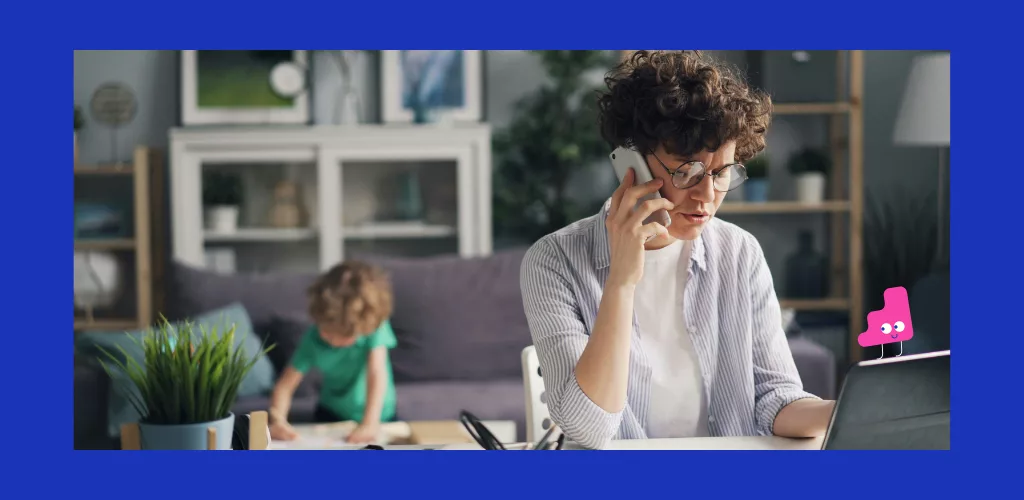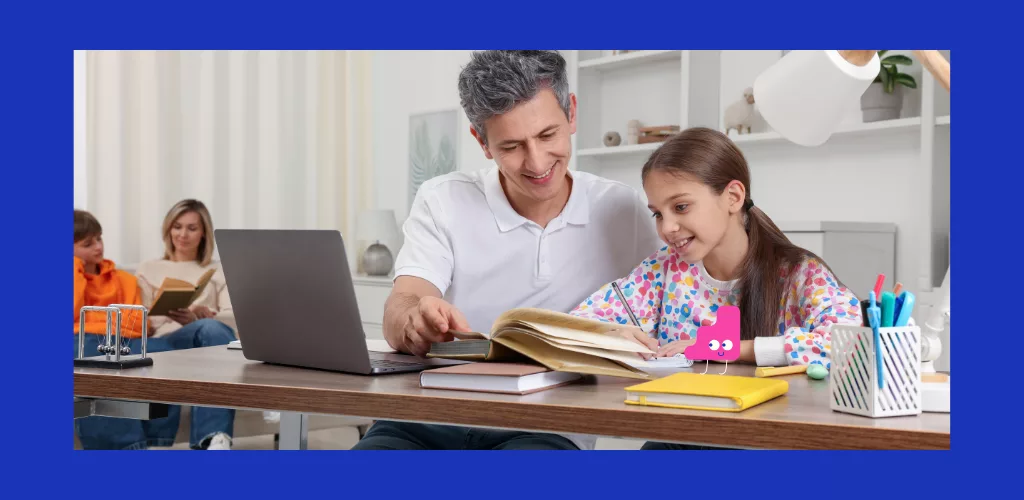Summer is supposed to be the time of year when you relax and let go of the pressures of everyday life. But for many parents, it's also a time of mental and logistical overheating. Organizing vacations, managing children, planning meals, anticipating the unexpected... what if we dared to tell it like it is? You have to prepare for a family vacation... so you don't end up exhausted.
In this article, I'll help you regain control, à distribute roles, à limit mental workload and really enjoy your time off with your family.
Summer is a false time of rest for parents (especially those with young children).
Behind the postcards and sunsets, summer hides another reality: that of day-to-day vacation management. At home or on the road, the list is long:
-
luggage to do (and do again)
-
meals to plan
-
errands to manage
-
children to look after
-
contingencies to absorb
In many families, a single person centralizes information, tasks and needs. The result: little rest, little mental availability, and a diffuse feeling of constant burden.
Summer mental workload: the figures speak for themselves
An IFOP study on inequality in the distribution of holiday-related tasks confirms this trend:
-
66% of women say they have contributed more than their spouse to the organization of their vacation, versus 34% of men.
-
48% of women are responsible for choice of accommodationcompared with only 26% of men.
-
On vacation, 54% of women prepare mealscompared to 24% of men.
-
The men drive more on vacation trips (58% vs. 18% for women).
-
53% of women are the sole breadwinners household and upkeep of their holiday home, compared with 15% of men.
-
78% of mothers pack their children's suitcasesand 75 % take care of their laundry.
-
41% of women admit to having already argued with their partner because of their partner's lack of involvement in vacation planning.
This imbalance creates physical and mental fatigueThis imbalance creates both physical and mental fatigue, which is all the more pronounced during a period that's supposed to be a break.
How to lighten your mental load during the vacations
Anticipating, but together
Organizing a vacation should not be the responsibility of just one person. Allocating responsibilities from the outset helps avoid tension and exhaustion.
-
Draw up a schedule of tasks: who manages the accommodation, who packs the suitcases, who does the shopping?
-
Involve children: depending on their age, they can manage their beach bag, choose activities and pack their belongings.
Delegate without overseeing
Delegating doesn't mean controlling. Accepting that things need to be done differently is essential if you really want to take a breather. The goal is not perfection, but sharing roles.
Children can take part too
Even the youngest can help. By giving them age-appropriate responsibilities, you reinforce their autonomy and involvement:
-
make their travel checklist
-
help set the table
-
carry their bags to the beach
-
managing a small souvenir budget
Involving children does not overload them: it makes them feel responsible and valued.
Take advantage of the vacations to slow down... really.
Summer is a break from school. But this free time can quickly become a source of anxiety if it isn't structured in some way.
Creating benchmarks
A visual vacation calendar helps children situate themselves: where we're going, when, with whom. It's reassuring and limits frustration.
Creating quiet moments
Vacations can be hectic. Creating a soothing ritual (shower, soft music, quiet time) helps the whole family to refocus.
No-pressure educational activities
You don't need vacation notebooks to stimulate children. There are a thousand different ways to learn.
Simple activity ideas
-
nature observation games
-
sensory challenges (recognizing a tree, a smell...)
-
making objects with natural materials
-
shell sorting, mandala creation, collective frescoes
These activities foster curiosity, creativity and independence.
Fun learning
Counting up the numbers for an outing, writing a postcard, calculating an itinerary... All of these learning activities have their place in everyday life. No pressure, no obligation, just pleasure.
Supporting teenagers in their use of screens
Summer is also a time when teenagers spend a lot of time on their phones. Rather than prohibiting or over-monitoring, why not open up a dialogue ?
Laying the foundations
-
discuss the content they follow
-
learn to identify aberrations (toxic influencers, problematic discourse)
-
think together about the impact of filters and unrealistic standards
Proposing alternatives
-
create a vacation video together
-
do a "no selfie photo" challenge
-
launch a detox of useless or anxiety-provoking content
The aim is not to do away with them, but to educate people to use them more healthily and consciously.
Video games: a lever for family bonding
Want to limit screens, but don't want to battle through every session either? Good news: video games can also bring people together..
Focus on cooperative games
Some games can be played as a family, without competition and with lots of laughs:
-
dance games
-
collaborative adventure games
-
mini sports tournaments or construction games
Appealing to nostalgia
Why not share your childhood games with your children? It's an opportunity to create memories together and re-establish a playful generational link.
And you in all this?
You're not just a parent organizer. You also need rest, lightness and breathing space. Summer doesn't have to grind you down.
What you can allow yourself
-
refuse certain activities without justification
-
letting go of perfection
-
say no to pancake stands or Instagrammable picnics
-
rest while others manage
The true success of a family vacation is not measured by the number of activities you check off, but by the the quality of presence.
To remember
-
Vacations can generate mental overloadespecially if they are organized by a single parent.
-
Involving everyone, adults and children, helps tobalance roles and relieves pressure.
-
Summer offers opportunities for informal learning and soft skills development.
-
Screens can be accompanied, questioned and regulatedwithout conflict.
-
Video games, nature projects and shared discussions are all great ways of strengthen the family bond.
-
And above all : taking care of yourselfis not selfish. It's necessary.




0 comments